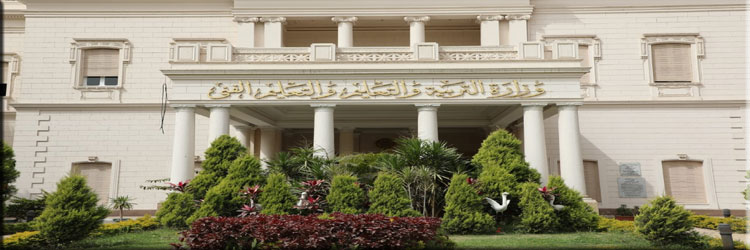"Education" revives the Arab Deaf Week ... 12,000 hearing-impaired people who are sponsored by the Ministry at all school levels

In light of the directives of Dr. Tariq Shawky, Minister of Education and Technical Education, the Ministry is participating in the revival of the Arab Deaf Week in its 46th session from 20 to 27 April, with the aim of shedding light and raising awareness of basic rights as awareness in the field of supporting the deaf and hard of hearing.
The Ministry is keen to provide the best services to students with special needs, as it provides educational services to 12,000 deaf and hard of hearing students in all academic stages, distributed over 192 schools and an attached classroom for the deaf and hard of hearing, and covers all governorates of the Republic.
The Ministry stated that 4,500 teachers specializing in dealing with deaf students participate in their education through the internal mission of teachers of the deaf or the training of the professional academy for teachers for special education teachers (hearing impairment), and most of them have postgraduate studies in special education.
We review the efforts of the Ministry of Education and Technical Education in this area:
- In 2016, the initiative "I am deaf, it is my right to understand me" was launched and 2 citizen service employees were brought in to teach them sign language to deal with the deaf and hard of hearing. This initiative was launched in all governorates through the special education departments in all directorates.
In 2016, the first unified indicative dictionary for the deaf was approved in cooperation with the Ministry of Communications and Information Technology.
- In 2017, Ministerial Resolution 252 was issued, which allowed the integration of hearing-impaired students and cochlear growers into public and technical education schools, which amounted to 4,143 this year .. In addition, Ministerial Decree 291 was issued, which provided a capital and production project for Al-Amal Schools for the deaf and hard of hearing.
- In 2018, the largest unified indicative dictionary for the deaf, consisting of 10,000 words in Arabic, English, finger spelling and lip language, was prepared in cooperation with the Archdiocese of Baba, Al-Fashn and Samasta.
- In 2018, 54 sign language trainers were accredited and 1,500 translators accredited in cooperation with the Ministry of Communications and Information Technology and the Professional Academy for Teachers.
- During the years 2019 and 2020, 11 classes were opened in 6 governorates to rehabilitate people with hearing and visual disabilities, and the teachers of those classes received high-level American training.
- Technological support has been provided to all stages of schools for the deaf and hard of hearing (represented in computers, printers and data show) and the increase in equipping the secondary stage with smart boards and educational CDs on which the curriculum is loaded through the Ministry of Communications and Information Technology.
- Sports tournaments were held in five-a-side football, basketball, athletics, table tennis, theater, painting, artworks, and early students for all students of schools of the deaf and hard of hearing throughout the previous years, starting from 2016 to date.
The success of these championships was crowned by the establishment of the first Arab Forum for Special Education and Inclusion Schools in Sharm El-Sheikh under the patronage and presence of President Abdel Fattah El-Sisi, President of the Republic, and this is the first time in the history of the Egyptian Ministry of Education in 2018.
- In cooperation with the Ministry of the Interior, the largest edifice for people with special needs for hearing and intellectual disabilities and autism was established, and includes cochlear implant clinics, speech units, skills development and sensory integration, in the tenth of Ramadan city under the name of Reyada Center for People with Special Needs.
- In 2020, a harmonization of 2.0 curricula for the deaf and hard of hearing was completed in cooperation with UNICEF and the largest specialized college in the Middle East in the field of disability, Faculty of Disability and Rehabilitation Sciences, Zagazig University, and a number of international experiences.
And finally, sign language was made available at the Knowledge Bank, where a library was made available for people with audiovisual needs, which included audio, video, and translated stories at the same time into sign language.
